Interview with Dr Elke Heidrich-Lorsbach "Our goal was to advance digitalisation in clinical trials”
Published: 05.05.2021
Together, Dr Elke Heidrich-Lorsbach and Michael Lorsbach founded Alcedis in 1992. Until 1998, the company still bore the name of its founders. With the development of Germany’s first web-based data collection forms for documenting the examination data of patients in clinical trials, they set the course for a digital CRO.
In this interview, Dr Elke Heidrich-Lorsbach looks back on the exciting beginnings, talks about the first challenges and names digital trends in clinical research.
Alcedis will be 30 years old next year. How do you remember the beginnings of the company?
"My husband came from the IT sector as an engineer and had worked abroad for a few years. I am a nutritionist, did my doctorate in biochemistry and then worked in the pharmaceutical industry in the field of oncological studies. At that time, our first child had just been born, we both loved working independently and wanted to stay in Germany for now.
So we combined our knowledge and professional experience to focus on the digitisation of clinical trials. One client quickly became several, the scope of services requested expanded, so we consistently built up staff and expanded our service portfolio. I never imagined back then that this would one day lead to a full-service CRO with almost 150 employees."
Latest Whitepaper
What did you want to push with Alcedis?
"We recognised early on that many work processes in clinical research were crying out for digitisation. Especially in the area of data collection, work was done almost exclusively with paper. That was tedious and cumbersome.
In the nineties, the internet entered the working world. The fact that gradually every workplace was getting internet access was the impetus for the development and introduction of our first web-based study documentation in 1997/98.
Our first electronic case report form (eCRF) was used in a multicentre lung cancer study. With this, we were pioneers in Germany. Our goal was to drive digitalisation in clinical trials. For this reason, we established our own IT department. A step that certainly contributed significantly to the successful development of the company."
How was the eCRF developed?
"The inspection plans specify which data are recorded and later evaluated. Similar to the creation of paper CRFs, the data entry forms are specified. The specification is the basis for setting up the database and programming the input forms, i.e. the eCRF.
In order to maintain good data quality, plausibility checks were also defined and programmed. Thus, errors were already pointed out during data entry, and incorrect data formats could not be entered or saved in the first place.
The aim of this procedure was, among other things, to reduce the number of implausible data and thus the effort of data cleaning. Different roles, such as investigator, documenter, data manager or sponsor, were given different rights to data and forms depending on their tasks. This made workflows more efficient and increased data quality and security."
You recognised digital trends early on. What challenges did you face?
"We had to do a lot of convincing. The internet was still uncharted territory back then. Not every centre had a computer with internet access for the documentation of study data. The main points of discussion were data protection and data security, data validity and the question of the acceptance of the study centres. The topic of electronic signatures also occupied us for a long time."
What did that look like in practice?
"In order to be independent of the centres' infrastructure, we equipped more than 100 centres with notebooks at that time. These were connected to the internet via an internet stick.
Internet coverage in Germany was still very poor in some places at that time. This led to the documentalists and doctors running through offices or doctors' rooms with their notebooks in search of a stable connection for data entry. The clinical monitors, which were supposed to check the data, had similar problems.
A glass of champagne spilled over the keyboard did not improve the connection either. Other notebooks could no longer be found. Those were the days."
What are current trends in clinical research?
"One keyword is "patient centricity": the patient will play a more active role in clinical trials. The rapid development in the field of devices makes it possible to collect data directly from the patient. One example of this is wearables, which record physical activity, pulse, blood pressure and much more. The trend is clearly moving in this direction.
Another point is the use of artificial intelligence in clinical research. Profiling or predicting events based on algorithms are part of this. This is a development that we are strongly pushing at the moment.
The topics are diverse and complex, and there is increasing specialisation in all areas. This requires greater networking and cooperation between different areas of expertise."
How will digitalisation shape clinical research in the future?
"The conduct of clinical trials will change a lot. In many areas, we are still at the beginning of digitalisation. In the next few years, this will certainly be consistently driven forward, so that all data accumulating in medicine will be available digitally, i.e. we can speak of Big Data.
This opens up great opportunities for the development and use of AI algorithms. Part of the questions asked in clinical trials can probably be answered via predictive models, so that fewer patients need to be involved.
The evaluation of images or tissue sections is already a topic for the use of AI algorithms. The result of the evaluation of images by machines is already very close to that of an experienced evaluator.
Job profiles will change. In a clinic in Tel Aviv, there are already successful trials of the use of avatars in taking patient histories. This allows doctors to be relieved of routine work and concentrate on the essentials. That shows we have arrived in the digital age."


